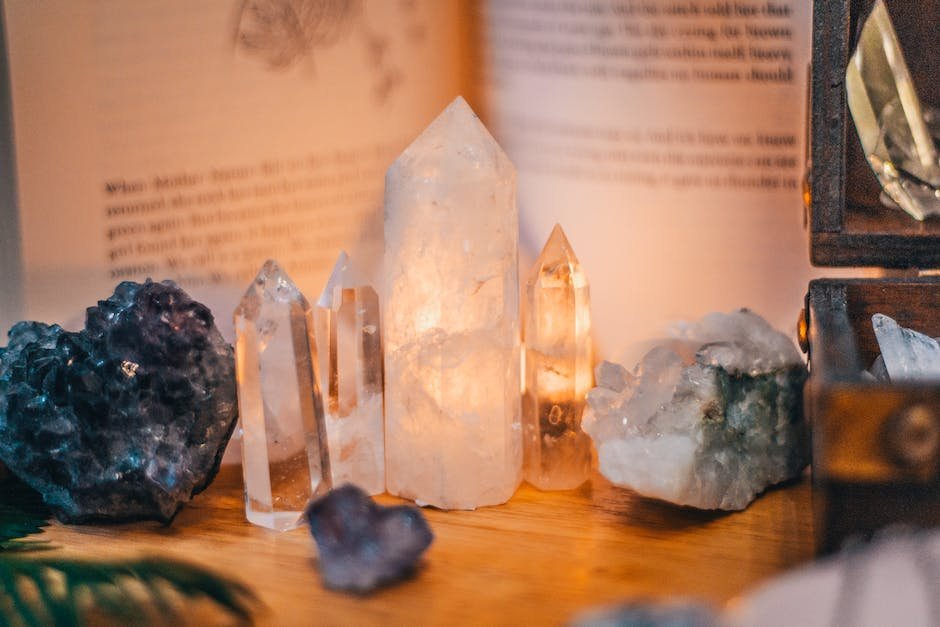The world seems to crumble beneath your feet. Every breath becomes loaded with a tangible heaviness, and the once vibrant colors of life turn into a dull grayscale. Breakups can inflict unbearable emotional turmoil, leaving us feeling lost, broken, and struggling to salvage what’s left of our shattered hearts. But much like a cancerous growth, the emotional toll of a breakup can spread its tendrils into every aspect of our lives, if left unchecked. In this article, we will explore the transformative power of protecting your emotional core, offering practical strategies to navigate the treacherous terrain of a breakup with resilience and grace. So, take a deep breath, gather your strength, and let us embark on a journey towards healing and self-discovery.
Table of Contents
- Heading 1: Navigating the Rollercoaster of Emotions After a Breakup: Understanding the Impact on Your Emotional Well-being
- Heading 2: Unveiling the Emotional Toll of a Breakup: Recognizing the Link Between Cancer and Emotional Health
- Heading 3: Healing and Rebuilding: Practical Strategies to Protect Your Emotional Core Throughout the Breakup Journey
- Heading 4: Cultivating Emotional Resilience: Mindfulness and Self-Care Practices for Emotional Healing
- Heading 5: Seeking Support: The Importance of Building a Strong and Nurturing Network During and After a Breakup
- Q&A
- The Way Forward

Heading 1: Navigating the Rollercoaster of Emotions After a Breakup: Understanding the Impact on Your Emotional Well-being
Navigating the Rollercoaster of Emotions After a Breakup: Understanding the Impact on Your Emotional Well-being
When a relationship comes to an end, it can feel like your world has been turned upside down. The emotional whirlwind that follows a breakup is a rollercoaster ride like no other. It’s important to understand the profound impact this journey can have on your emotional well-being. Here are a few key points to help you navigate through the storm of emotions:
- Acceptance: Recognize that it is normal to experience a range of emotions after a breakup. Give yourself permission to feel and process these emotions as they come. Allow yourself time to grieve the loss and accept the reality of the situation.
- Self-Care: Prioritize self-care during this challenging time. Engage in activities that bring you joy and comfort, whether it’s practicing mindfulness, pursuing a hobby, or spending time with loved ones who offer support. Taking care of your physical and mental well-being is crucial in the healing process.
- Seek Support: Remember that you don’t have to go through this alone. Reach out to trusted friends, family members, or even seek professional help if needed. Surrounding yourself with a support system will provide you with the understanding and encouragement necessary to navigate the emotional rollercoaster.
Remember, healing takes time. Understanding the impact of a breakup on your emotional well-being is the first step in your journey towards healing and growth. Embrace the process, be patient with yourself, and know that brighter days lie ahead.

Heading 2: Unveiling the Emotional Toll of a Breakup: Recognizing the Link Between Cancer and Emotional Health
Unveiling the Emotional Toll of a Breakup: Recognizing the Link Between Cancer and Emotional Health
In the midst of a breakup, the rollercoaster of emotions can be overwhelming and seemingly never-ending. Recent research has shed light on the profound impact that these emotional upheavals can have on our overall health, with a particular focus on the connection between cancer and emotional well-being. It has become increasingly evident that unresolved emotional trauma plays a significant role in the development and progression of cancer.
When a relationship ends, the emotional distress experienced can have a profound effect on our bodies. Increased stress levels weaken our immune system, making us more susceptible to various diseases, including cancer. Furthermore, the release of stress hormones can disrupt normal cellular function, potentially leading to dysregulation and mutations that can contribute to the growth of cancer cells. It is crucial to recognize and address the emotional toll of a breakup to minimize the impact it may have on our physical health.
So, how can we navigate the emotional aftermath of a breakup? Here are a few strategies to consider:
- Seek support: Reach out to friends, family, or a therapist who can provide a listening ear and guidance during this challenging time.
- Practice self-care: Prioritize activities that bring you joy and help alleviate stress, such as exercising, meditating, or indulging in hobbies.
- Express yourself: Find healthy outlets for processing your emotions, such as journaling, painting, or talking to a trusted confidant.
- Embrace self-compassion: Recognize that healing takes time, and it is okay to give yourself permission to grieve and heal at your own pace.
By acknowledging the effects of a breakup on our emotional well-being and taking proactive steps to heal, we can safeguard our physical health and reduce the potential risk of cancer. Remember, amidst the challenges, there is always hope and a path towards emotional healing and resilience.

Heading 3: Healing and Rebuilding: Practical Strategies to Protect Your Emotional Core Throughout the Breakup Journey
Healing and Rebuilding: Practical Strategies to Protect Your Emotional Core Throughout the Breakup Journey
When going through a breakup, it is essential to prioritize your emotional well-being. This challenging period can leave you feeling vulnerable, but don’t despair – there are practical strategies you can implement to protect your emotional core and begin the healing process. Here are a few valuable tips to help you navigate the breakup journey:
- Practice self-care: Take the time to nurture yourself and engage in activities that bring you joy. Exercise regularly, eat healthily, and get enough sleep to support your physical and emotional health.
- Seek support: Surround yourself with a supportive network of friends and family who can provide comfort and understanding. Additionally, consider seeking professional help, such as therapy or counseling, to guide you through the healing process.
- Allow yourself to grieve: It is okay to feel sadness and experience a range of emotions after a breakup. Give yourself permission to grieve and process your feelings. Journaling, meditation, or participating in support groups can be valuable outlets for expressing and understanding your emotions.
- Set boundaries: Establish clear boundaries with your ex-partner to protect your emotional well-being. This may include limiting contact or avoiding certain triggers that could reopen emotional wounds.
- Focus on personal growth: Use this period to invest in yourself and explore new interests. Set goals for personal growth and embark on new adventures to rediscover your passions and build a fulfilling life on your own.
- Practice forgiveness: As difficult as it may be, forgiveness is a powerful tool for healing. This doesn’t mean forgetting or condoning past actions but rather finding peace within yourself and letting go of resentment.
Remember, healing takes time, and everyone’s journey is unique. By implementing these practical strategies, you can protect your emotional core and begin your path towards rebuilding and finding happiness after a breakup.

Heading 4: Cultivating Emotional Resilience: Mindfulness and Self-Care Practices for Emotional Healing
Cultivating Emotional Resilience: Mindfulness and Self-Care Practices for Emotional Healing
Emotional resilience is the ability to adapt and bounce back from life’s challenges, and ultimately, it is a skill that can be cultivated and strengthened through mindfulness and self-care practices. In the midst of life’s ups and downs, it’s essential to develop coping mechanisms that promote emotional healing and foster a positive mindset.
One powerful practice is mindfulness meditation, which involves focusing your attention on the present moment without judgment. By redirecting your thoughts away from worries about the past or future, you can cultivate self-awareness, reduce stress, and promote emotional well-being. Consider starting with a simple breathing exercise: close your eyes, take a deep breath in, and gradually exhale while observing the sensation of your breath. Repeat this process, acknowledging any thoughts or emotions that arise, but gently letting them go.
In addition to mindfulness, self-care practices play a crucial role in nurturing emotional resilience. It’s essential to listen to your body and engage in activities that bring you joy and relaxation. Whether it’s practicing yoga, going for a nature walk, or indulging in a good book, self-care allows you to recharge and replenish your emotional resources. Remember, self-care isn’t selfish; it’s an act of self-compassion and an investment in your emotional well-being. Prioritize self-care and watch as your emotional resilience grows.
Heading 5: Seeking Support: The Importance of Building a Strong and Nurturing Network During and After a Breakup
Going through a breakup can be an emotionally challenging experience, filled with feelings of sadness, confusion, and loneliness. During this time, it is crucial to seek support and surround yourself with a strong and nurturing network of people who can provide comfort and guidance.
Building a solid support network during and after a breakup can greatly contribute to your healing process. Here are a few reasons why:
- Emotional Validation: In times of distress, having people who understand and validate your emotions can make a world of difference. A supportive network will listen without judgment, allowing you to freely express your feelings and assisting you in feeling understood.
- Guidance and Perspective: Outside perspectives from trusted friends and loved ones can provide valuable guidance when navigating the challenging aftermath of a breakup. Their insights may shed light on options and solutions that you might not have considered.
- Distraction and Fun: Surrounding yourself with supportive friends can provide moments of lightheartedness and distraction from the pain. Laughter and enjoyable activities with your network can help you shift your focus and find joy amidst the turmoil.
Post-breakup, it is essential to stay connected to your support system. They can continue to provide comfort during the healing process and act as a sounding board as you rebuild your life. Remember, seeking support is not a sign of weakness, but rather a sign of strength and self-care.
Q&A
Q: What are common emotional challenges people face after going through a breakup?
A: After a breakup, people often experience feelings of sadness, anger, and betrayal. They may also struggle with a loss of self-esteem, anxiety about the future, and a sense of loneliness.
Q: How can I protect my emotional well-being during a breakup?
A: It is important to prioritize self-care during this time. Engage in activities that bring you joy, lean on supportive friends and family, practice self-compassion, and seek professional help if needed.
Q: Is it normal to feel a range of emotions during a breakup?
A: Absolutely! Breakups can trigger a rollercoaster of emotions, including sadness, relief, anger, confusion, and more. It’s crucial to acknowledge and process these feelings in a healthy way.
Q: What are some healthy coping mechanisms for dealing with heartbreak?
A: Engaging in activities that promote self-care, such as exercise, journaling, or practicing mindfulness, can help process emotions. Surrounding yourself with a strong support system and seeking therapy can also be beneficial.
Q: How can I rebuild my self-esteem and regain confidence after a breakup?
A: Focus on self-love and self-acceptance. Engage in activities that make you feel good about yourself, set realistic goals, challenge negative self-talk, and remind yourself of your worth and strengths.
Q: How long does it typically take to heal emotionally after a breakup?
A: The healing process is unique for everyone and can vary in duration. It is important to be patient with yourself and allow time to grieve and heal. Remember that healing happens gradually, so focus on progress rather than a specific timeline.
Q: Should I cut off contact with my ex to protect my emotional well-being?
A: In most cases, establishing boundaries and limiting contact with your ex can be helpful during the healing process. However, the decision should be based on your personal circumstances and what feels right for you.
Q: What can I do to prevent myself from getting stuck in a negative mindset after a breakup?
A: Practice gratitude, challenge negative thoughts, engage in positive self-talk, and seek out activities that bring you joy. Surrounding yourself with positive influences and practicing mindfulness can also help shift your mindset.
Q: How can I manage the feelings of loneliness that often accompany a breakup?
A: Reach out to friends and family for support, join social groups or clubs that align with your interests, consider pursuing hobbies and activities that allow you to connect with others, and remember that it’s important to enjoy the time you spend alone as well.
Q: Is it normal to still have some lingering feelings for my ex after a breakup?
A: Yes, it is completely normal to have lingering feelings for your ex. Healing takes time, and it’s okay to have mixed emotions. Allow yourself to feel these emotions without judgment, and with time, they will likely lessen.
The Way Forward
As we conclude our journey through the intricate world of emotions during a breakup, we hope to have served as a guiding light, illuminating the path towards protecting your emotional core amidst the storm of cancerous heartache.
Remember, dear reader, that these tender moments of vulnerability are not to be feared but embraced. Emotions, like cells in our bodies, require our utmost care and attention. And when confronted with the hurricane-force winds of a breakup, it is all the more essential to preserve and nurture the delicate fibers of our emotional well-being.
While the road to healing may seem treacherous and obscure, take solace in knowing that you possess an inherent resilience. Just as cancer survivors undergo rigorous treatments, ultimately emerging stronger, so too can you emerge from this storm transformed and empowered.
Like a skilled surgeon performing surgery, it is crucial to excise toxicity and negativity from your emotional landscape. Engage in self-reflection and introspection, carefully discerning what serves your emotional well-being and what hinders it. Treat yourself with compassion, showering your wounded heart with love and understanding.
Find solace in the support systems that surround you, drawing strength from the gentle words of a trusted confidant or the warmth of a loving embrace. Recognize that seeking help is not a weakness but an act of courage, an acknowledgment of your emotional needs.
As you traverse this tumultuous journey, do not be discouraged by setbacks or jagged emotional edges. Allow yourself the space to grieve, to feel the magnitude of loss, while simultaneously striving to break free from the shackles of despair. Embrace the bittersweet symphony of emotions, for it is through navigating the depths of sorrow that we discover the boundless reservoirs of our own resilience.
Above all, remember that your emotional core is strong, resilient, and capable of rejuvenation. It may bend under the weight of heartache, but it shall not break. Through self-care, compassion, and unwavering self-belief, you will emerge victorious from the ashes, your spirit more vibrant than ever before.
So, dear reader, take this knowledge and embark on your own journey to protect your emotional core. Let your sensitivity serve as a guiding compass in navigating the tumultuous waters of a breakup. For in nurturing your emotional core, you unleash your own transformative powers, defying the very cancer that seeks to consume it.
As an affiliate, my content may feature links to products I personally use and recommend. By taking action, like subscribing or making a purchase, you’ll be supporting my work and fueling my taco cravings at the same time. Win-win, right?
Want to read more? Check out our Affiliate Disclosure page.